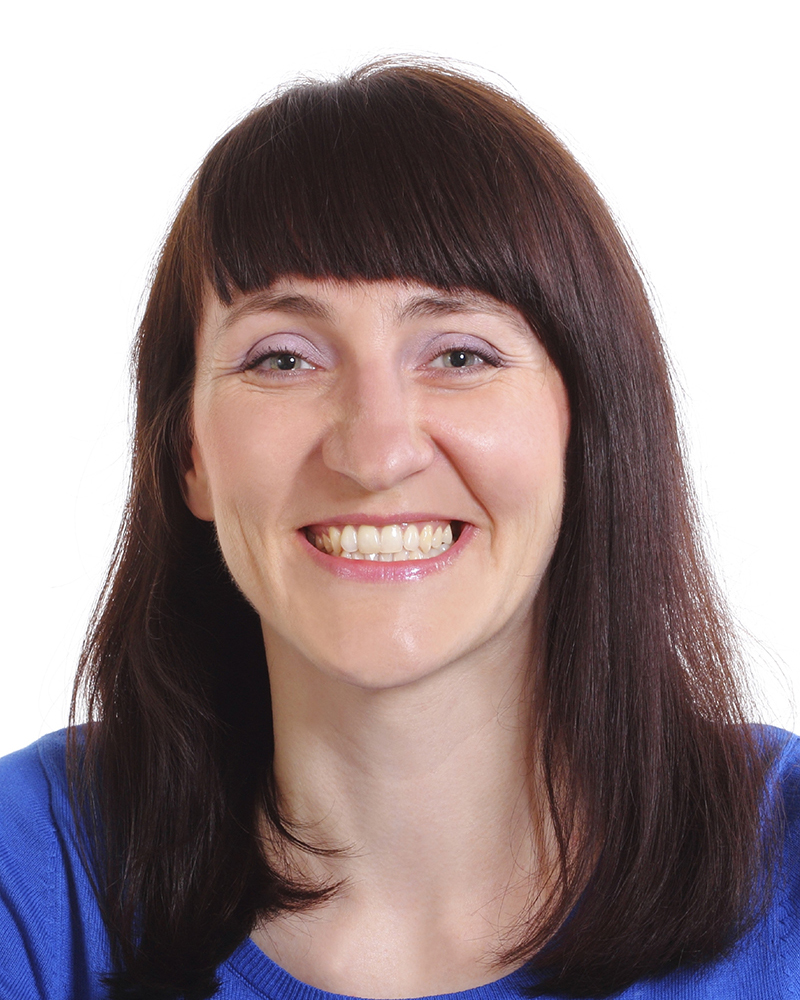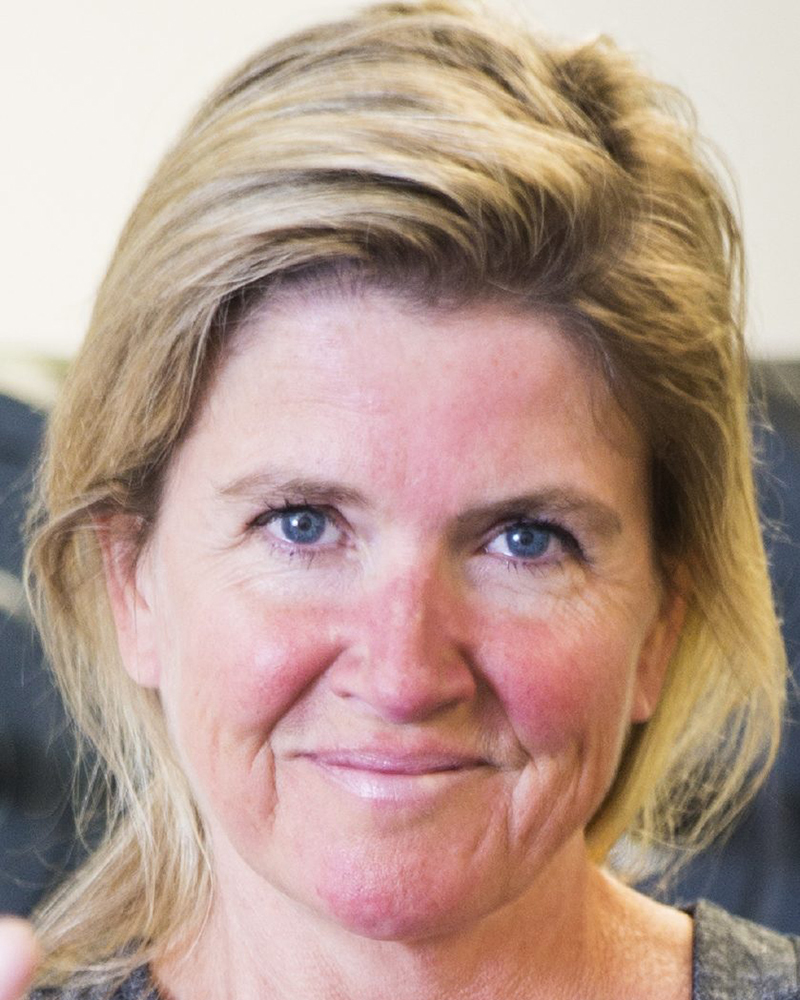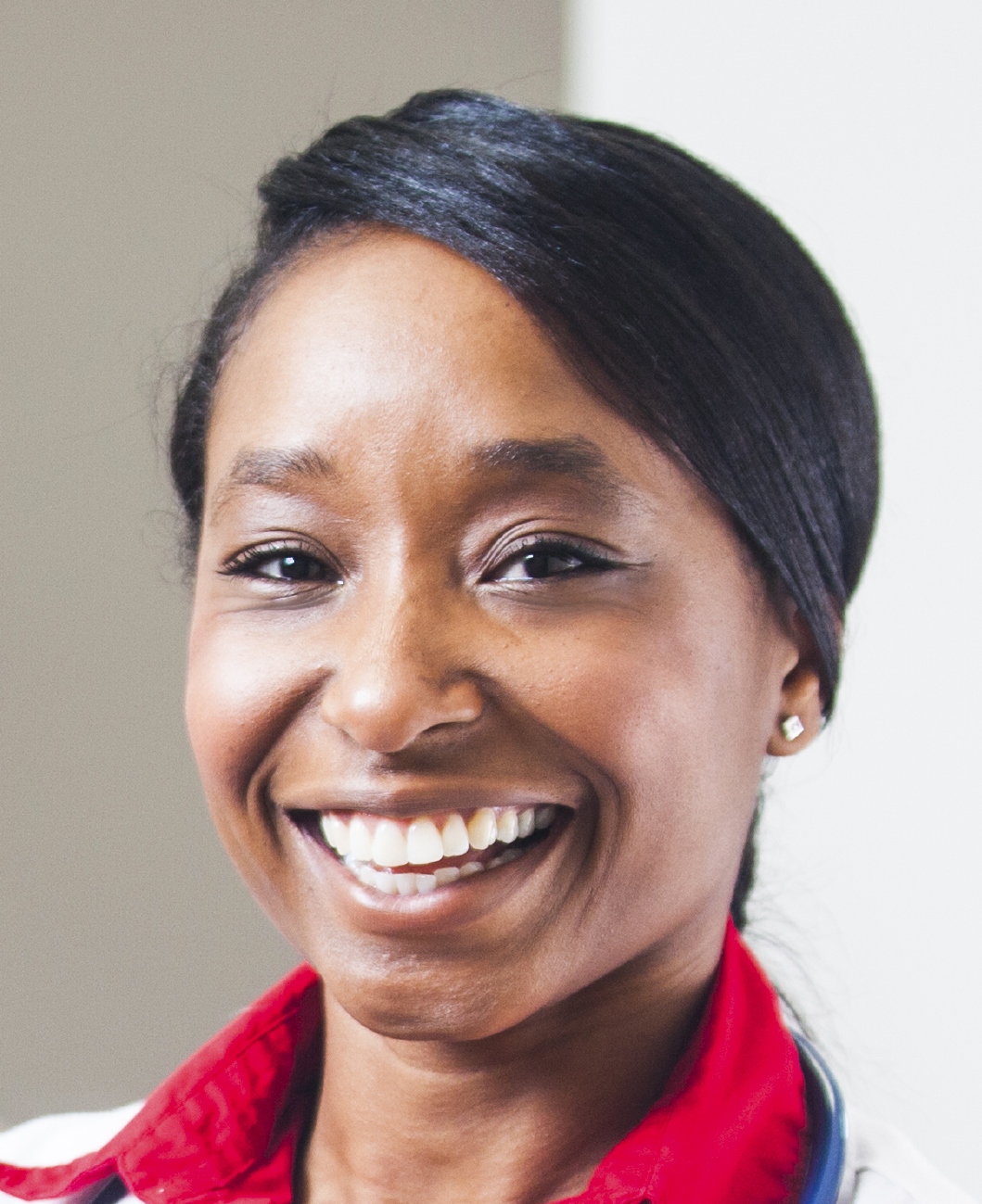Real Patient Stories
A new diagnosis of diabetes can be overwhelming. Here are some real stories of patients with diabetes and their advice — from one patient to another.

Maggie
Read Maggie's Story:
1. How old are you and how long have you had diabetes? I am 26 years old and have had diabetes for about 13 years.
2. What can you tell us about your original diagnosis of diabetes?
I was diagnosed with type 1 diabetes five days before my 13th birthday. I was at summer camp for 4 weeks and I had to go to the bathroom every 30 minutes. I remember drinking entire pitchers of water and lemonade. My mom came to visit and noticed that I had lost a lot of weight, and she took me to the doctor. I was diagnosed with type 1 diabetes immediately.
3. How did that news affect you?
I was sad to leave the summer camp and I was overwhelmed with the learning. I was also stressed out because I was about to start high school. I don’t remember having any feelings about diabetes specifically. I was only scared because I had never seen my parents so upset and worried before.
4. Does anyone else in your family have diabetes?
No.
5. What changes have you made to your diet and exercise because of diabetes?
I grew up with diabetes, so I don’t know what I would be like if I didn’t have it. That said, nutrition and exercise were important to my whole family even before my diagnosis.
6. What kinds of medications do you take for diabetes?
I use the short acting insulin novolog via a t:slim insulin pump and I use a continuous glucose monitor (CGM).
7. What are the things that you like about using an insulin pump?
I like to be able to give myself small boluses to correct myself into range. With syringes, I would only be able to give 0.5 unit increment corrections. I also like to be able to bolus for seconds or thirds when I’m eating a meal!
8. What are the things you like about using the continuous glucose monitor (CGM)?
My CGM is my favorite piece of diabetes technology. I have my dexcom CGM connected to my Apple watch, so my blood sugar is always at my fingertips. I like to be able to know from my dexcom before my blood sugar is high or low so that I can take action in advance.
9. How well do you feel your diabetes is controlled?
I know that my diabetes is well-controlled from an A1c perspective. That said, I’m a very Type A person and if I see numbers outside of my target range it can be frustrating. I have to remind myself that I cannot perfectly simulate an organ that does not work.
10. Do you have any complications from diabetes?
No
11. How has diabetes impacted your everyday life?
Diabetes has impacted every part of my everyday life. I don’t remember what it was like to eat something without checking my blood sugar and thinking about carbs, and I don’t remember what it was like to go 20 minutes without thinking about my blood sugar! That said, I don’t think diabetes stops me from doing anything I would otherwise want to do.
12. Has diabetes impacted how you work?
As a pediatric diabetes nurse, I try to treat my patients how I want to be treated as a patient. I think the families I work with are comfortable with me because they know I’m familiar with what they’re going through. Many of the kids have never met another person with diabetes, and they are excited to meet another person with a pump and CGM.
13. What worries you the most about diabetes?
I worry more for my patients about the rising cost of healthcare and medication in the US. I worry that technological and pharmaceutical advances won’t be available to those who need them.
14. What advice would you give for someone with a new diagnosis of diabetes?
It gets easier! Once the learning curve is over, you will develop confidence in your abilities.
15. What advice would you give for parents who just found out that their kid has diabetes and are worried that their kid may not live a normal life or be able to get his/her dream job in the future because of diabetes?
I try to remind my patients to treat their kids with diabetes like regular kids. Diabetes is only one part of them, and shouldn’t be their identity as they grow up. Kids with diabetes are also athletes, artists, students, etc. I also think it’s important for kids and their parents to see adults and older kids who are thriving with diabetes.

Kellie
Read Kellie's Story:
- How old are you and how long have you had diabetes?
I am 57 years old and have had diabetes for about 5 years.
- What can you tell us about your original diagnosis of diabetes?
I was diagnosed with type 2 diabetes around age 50. I had gestational diabetes in my 20s and knew that I was at higher risk to develop type 2 diabetes eventually. Around the time of my diagnosis, I “felt funny”, with blurry vision and some confusion. My mother (who has type 1 diabetes) tested me with her glucose meter and the reading was over 300 mg/dl. My primary provider then checked labs which confirmed the diagnosis.
- Does anyone else in your family have diabetes and what was their experience?
Both of my maternal grandparents have type 2 diabetes. My mother had type 1 diabetes from an early age. I also have several maternal aunts with diabetes. Some family members died young from complications related to diabetes. On the other hand, my mother has very good control and minimal complications.
- How did that news affect you?
Initially, I was in denial. I felt helpless and hopeless. However, my mother provided a lot of support and as I got used to the lifestyle changes, I felt more “in control” and was able to accept it. It look a long time to adjust, but now I am much more comfortable with my diagnosis.
- What changes have you made to your diet and exercise because of diabetes?
I have always been someone that walks and keeps busy (I volunteer at an animal shelter). Diet was the largest change. I’ve learned to plan meals better, knowing when and what I’ll eat (in terms of carbs), which I never had to do before.
- How has diabetes impacted your everyday life?
I need to check glucose when I feel “funny”, which can be intrusive. Now that I’m taking diabetes medications, I have to consider what I eat more closely. I have to adjust insulin when feeling sick. Sometimes when I’m not really hungry, I have to eat to avoid hypoglycemia.
- What worries you the most about diabetes?
Heart disease risk is my biggest concern. A close second is the risk of hypoglycemia, especially if it were to happen when I’m alone.
- What do you wish people knew about diabetes?
It’s a lifestyle change – it impacts every part of your life (medications, meals, etc). If you can realize this earlier on, you’ll get under control much more quickly.
- What advice would you give for someone with a new diagnosis of diabetes?
Learn as much as you can. Don’t give up: you CAN get in control, but you don’t always see it at first.

Joe
Read Joe's Story:
1. How old are you and how long have you had diabetes?
I’m 29 years old and I have had diabetes for over 25 years.
2. What type of diabetes do you have and how were you diagnosed? (did you have any symptoms?)
I was diagnosed with Type 1 Diabetes at the age of three. My parents told me that following a seizure I had, which was induced by hyperglycemia – not hypoglycemia –while I was asleep, they both rushed me to the Emergency Room. With a blood glucose reading of 1000, I was administered intravenous insulin immediately. Prior to my diagnosis, I displayed symptoms of frequent urination, drinking more water than normal, abrupt changes in energy, impaired ability to speak, and irritability.
3. Does anyone else in your family have diabetes?
My father, who was recently diagnosed, and my grandfather (on my father’s side) have/had Type 2 Diabetes. To the knowledge of my family I am the first one in my family to have Type 1 Diabetes.
4. What kind of medications do you take for diabetes?
I administer two types of insulin subcutaneously. One is a short acting insulin, Fiasp, and the other is a long acting insulin, Tresiba. I have used other types of insulin in the past. I, also, in the past used a hormone called Symlin, which delays the body’s absorption of carbohydrates.
5. Do you use any of the diabetes technology devices? What are the things you like about that device?
In the past I was on an insulin pump – different ones including Animas, Omnipod, Duo, and Htronic. Presently, I use the Dexcom G6 continuous glucose monitor (CGM). The CGM is especially helpful with exercise, such as when I am running or bike-riding, and specifically, when I need to ensure that I do not go hypoglycemic (as well is hyperglycemic if I am concerned); and, during the night when I am looking to give insulin for fat included in certain foods I ate prior. I can use the CGM to set alarms for if my glucose levels are about to go out of range.
6. How does diabetes technology make you feel in terms of caring for yourself (glucose control, quality of life, feeling secure, etc)?
Advances in diabetic technology provide the potential and opportunity for tighter blood glucose control. The use of this advanced technology such as the Dexcom G6 CGM for example, is not a guarantee for optimal blood glucose control. I still uphold my obligation to manage, observe, and focus on my blood glucose levels each day. Over more than 25 years I have seen technology in Diabetes come a long way to say the very least. I feel unlimited instead of limited in my life using the advances in diabetic technology (e.g. Fiasp insulin and Dexcom G6).
7. How well do you feel your diabetes is controlled?
I am fortunate to have grown up with two doctors as a child whose assiduous work and unlimited time spent on my Diabetes developed me into becoming a diabetic with astute control. Two nurse practitioners showed me different methods for insulin management and those methods I use as a foundation that I have built upon since a young child. My A1Cs are normally in the mid to upper 6 range. My highest A1C was when I transitioned from Humalog to the Apidra insulin during high school when it was 8.4. My lowest A1C to date was 6.4, which occurred in the last two years.
8. Do you have any complications from diabetes?
No, I do not have any complications from Diabetes. I have my blood work tested once every year, nerves in my feet tested, and my eyes examined to ensure that I do not have any complications.
9. How has diabetes impacted your everyday life?
Human beings define their conscious sense of self, individuality, and character from times of adversity. Diabetes has set a path for me. I have defined who I am through the Diabetes through the challenges it has placed before me and carry a sense of pride having done so. Diabetes, overall, to me even with its hardships is and remains a blessing in my life.
10. What worries you the most about diabetes?
I am not worried that I will have complications necessarily, but I want to do the best I can every day with life circumstance so to make sure that I have done my very best to avoid them. I want to do everything I can so that I can avoid Diabetic complications despite what my genetics may present as a disadvantage against me avoiding them. For these reasons, I am strict with keeping my A1C in perfect range and at the very least close to perfect range if not that.
11. What advice would you give for someone with a new diagnosis of diabetes?
Diabetes despite it classified as a chronic illness is manageable. Control is possible through research, routine, dedication, and technology all in combination. I have a passionate and dedicated endocrinologist who provides insights and recommendations that can change one’s life for the positive. I would encourage that one learn about the technology available generally speaking for managing Diabetes whether it is insulin pumps, insulins, or CGMs. Exercise whether it is biking, running, lifting weights, or boxing is so crucial to help one increase his or her insulin sensitivity, which results in the body needing less insulin, but only does so in combination with a raw or close to raw diet. The individual has the choice to determine whether Diabetes is debilitating.

Carolyn
Read Carolyn's Story:
- How old are you and how long have you had diabetes?
I am 69 years old and have had diabetes for about 5 years.
- When were you first told you had diabetes?
I was first told that I had diabetes in the weeks following a kidney transplant. They noticed that my glucose levels were elevated when in the hospital and I was formally diagnosed at a clinic visit a week or so later. I had been seeing doctors regularly my whole life and this was a new diagnosis for me.
- What feelings did you have?
I took it in stride and didn’t get too upset. I knew that I had to focus on my kidney health and I was determined to get control of the diabetes, as well.
- What changes have you made to your diet and exercise because of diabetes?
I definitely watch what I eat more and try to exercise daily or at least a few times per week. I used to eat a lot of sweets and starch (for instance, mac and cheese or mashed potatoes), but not anymore. I try to eat more salads. This took some effort to “re-program myself”, but I find that now I have lost a taste for those other foods. I feel much healthier since I made this change.
- What advice would you give for someone with a new diagnosis of diabetes?
You have to control your emotions – because when you’re emotional, control goes down. Follow the diet that the provider gives you and take their advice. Be sure to exercise more and always take your medication.
- Anything else?
I was friends with an older woman with diabetes and I kept telling her to watch what she eats. She didn’t have good control of her diabetes and her sight has deteriorated to the point where she can’t drive. I used that as a motivation to make the difficult changes to diet and exercise that were needed for me.
*Disclaimer: These are stock photos and are not photos of actual patients. However, these stories are from real patients seen at The Johns Hopkins Comprehensive Diabetes Center and who have allowed their first names to be used.
